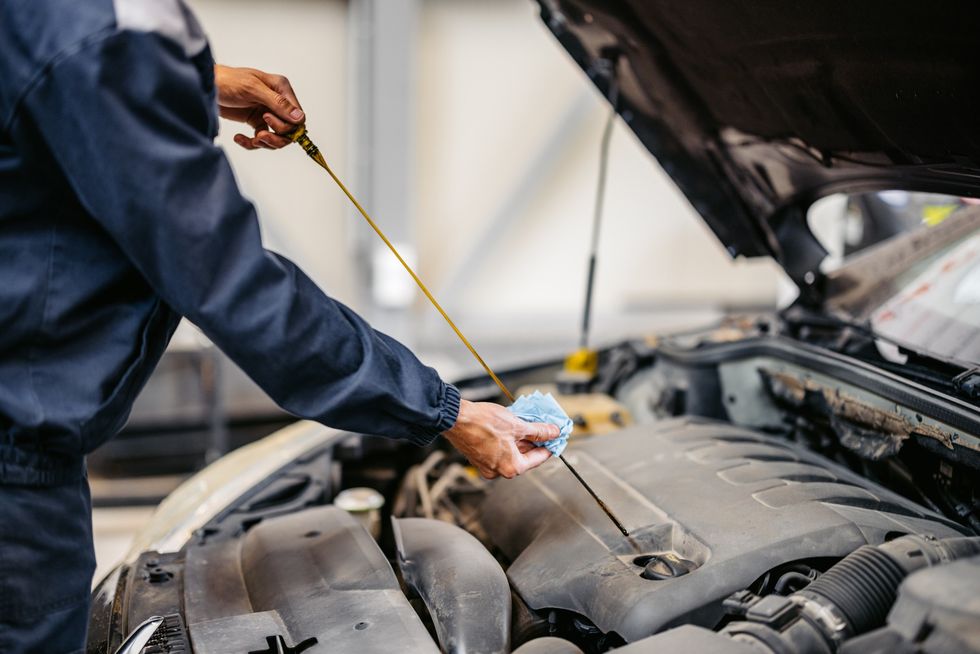



Drivers could risk invalidating their car insurance as well as being slapped with a £100 fine for failing to follow key maintenance rules.
The warning comes after experts highlighted that if drivers fail to keep their driveways clear, it could cause damage to their vehicles and more issues "down the line".
Simple maintenance measures on driveways could help remove potential hazards, as experts warn that failing to act could lead to fines, vehicle issues, and even problems with insurance.
One of the tips includes cleaning up oil and fluid stains, which can build up when a car has been parked in the same place for a long time.

Drivers can be fined if their vehicle obstructs the pavement under UK law
GETTY
If this is left untreated, it could lead to spills that can become slippery or even damage the driveway surface over time, experts stated.
In more serious cases, a poorly maintained driveway could also put drivers at risk of insurance problems, as they may view it as poor vehicle management.
Experts warned that if hazards on the driver’s property cause the vehicle damage, "insurers might argue that the issue stems from neglect and could deny your claim".
Meanwhile, if the vehicle is found parked in a non-secure place with unsafe or deteriorated surfaces, "insurers may view this as a misrepresentation and affect your cover".

Drivers have been advised to clear oil spill stains from driveways
GETTY
Graham Conway, Managing Director of Select Car Leasing, said: "People often forget about driveway maintenance when looking after their car, but it’s usually the first place where small issues start to appear.
"If you’ve got oil leaks, worn tyres, or clutter piling up, it can lead to bigger issues down the line. A clean, organised driveway helps protect your vehicle, avoids potential legal trouble, and makes summer driving that little bit smoother."
For older stains, drivers can use a specialist driveway cleaner or degreaser, while fresher spills can be treated with bicarbonate of soda or dish soap.
Drivers should also consider fixing another surface hazard, such as loose gravel or uneven paving slabs, which have been known to wear tyres down.
An overloaded driveway could cause problems for motorists as items which block the pavement are seen as an obstruction, with police able to issue a fine for the issue.
Under UK law, it states that vehicles should "not obstruct pavements or be parked in a way that causes inconvenience or danger".
The penalty for this could be as much as £100, although the expert noted that this depends on different council rates throughout the UK.
Drivers should also make sure they conduct regular checks of drainage and surface conditions, which become particularly concerning in the warmer months.

Drivers should ensure tyres remain in good condition on clear driveways
GETTYThis is due to summer bringing in drier weather, which can still cause problems such as heat and tyre friction. To avoid this, drivers have been advised to clear debris from drains and fix any cracks or holes
Conway added: “Weeds may seem like just a cosmetic issue, but if left untreated, they can cause damage to your driveway’s surface. Growing between slabs and in cracks, they widen gaps and weaken the structure, which can create an uneven surface that strains your tyres and suspension.
"Weeds also hold moisture, encouraging moss and algae that create slippery patches and pose a safety risk. To stay on top of it, regularly pull weeds or use a suitable weed killer that won’t harm your driveway’s surface."
He explained that drivers should also sweep the area often to stop new seeds "taking root and consider applying a sealant if cracks have already appeared".
